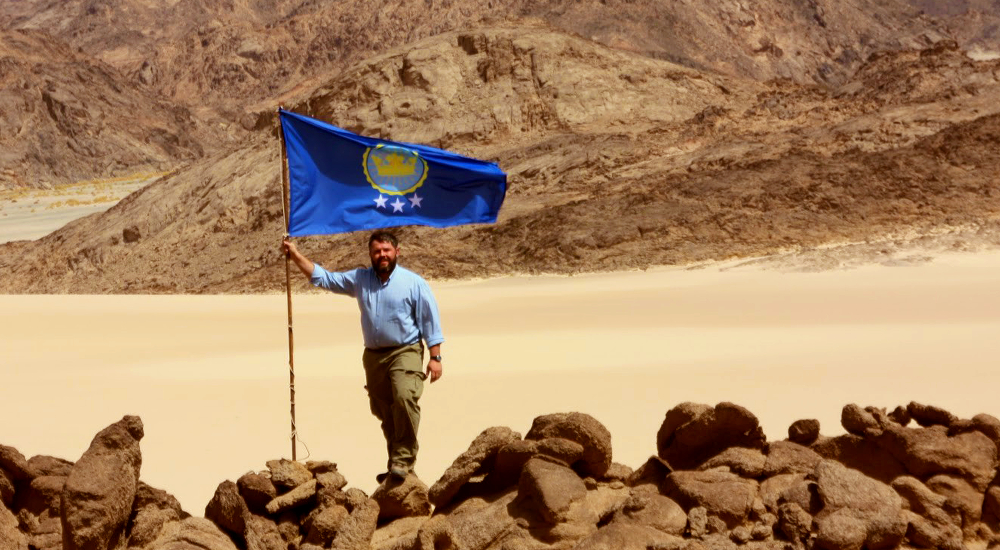Score: B
Director: Danny Abel
Running Time: 95 Minutes
Rated: NR
The King of North Sudan belongs in that subset of stranger-than-fiction documentaries, like Finders Keepers or The Queen of Versailles. The real-life Southerners have outsized personalities and crazy stories. It would be easy to mock them if the directors didn't humanize their hubristic protagonists.
You might remember the genesis of this story, which was shared as a feel-good human interest piece back in 2014. Virginia dad Jeremiah Heaton staked a strip of disputed territory between Egypt and Sudan. He "established" the Kingdom of North Sudan, thereby making his daughter a princess. It went viral, and Disney even bought the rights to make the story into a movie. And if Heaton had ended it there, it would have just been a historical footnote. But he saw dollar signs. When the movie never came to fruition, he started looking for ways to legitimize his country, setting off a crazy chain of events involving shady foreign investors, back-channel negotiations and even the White House.
While the documentary does have some flab, it needs to be feature-length because of the film's crazy twists and turns. When his hope for agri-business and science research goes nowhere, Heaton puts some feelers out with ex-military guys, in hopes the armed forces could use the land as a base. But it all goes belly up when his connection to the Trump administration gets into legal trouble. That's right, his inside track was Michael Flynn, who resigned 22 days into his tenure as National Security Advisor. But the film only gets stranger from there, as Heaton seeks out foreign investors. His trip to China includes lots of wining and dining, but results in no major investments. That leads him to shady partners just to try to get something off the ground.
Meanwhile, his home life suffers, as his wife is left to be the sole breadwinner, while managing grad school and raising their two kids. Heaton even becomes a trucker, which brings in some needed income, but still keeps him away from home. Scenes like this nail the thesis that drive and ambition mean next to nothing if you don't have money. (A monologue to this effect is a little redundant.)
Heaton is charming, but it's not surprising legitimate money guys don't take him seriously. Fair or not, he doesn't have the look or presence to be commanding $100 million investments. He also can't stop putting his foot in his mouth, especially when he's criticized about his venture. It's absolutely fair and relevant to wonder why a white man should be able to lay claim to a continent that's been pillaged for centuries, but all he can do is claim he "doesn't see race." It's cringe-worthy moments like this that make it easy to see why Danny McBride and his pals are listed as executive producers.
The King of North Sudan is a wild story that covers all sorts of international intrigue, while still keeping the focus on one man's crazy dream.

